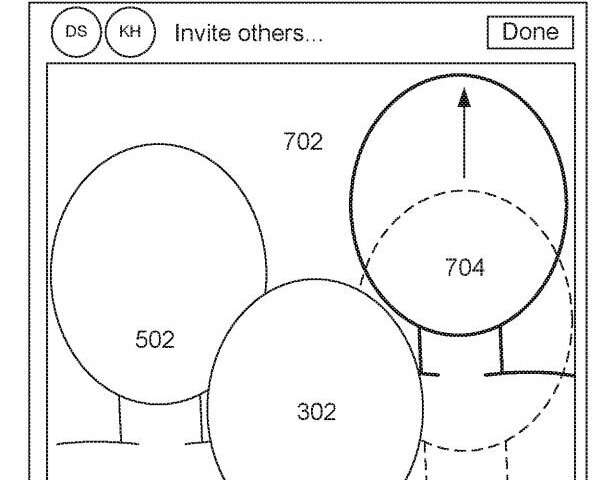June 8, 2020 report
Apple patents socially-distant selfies

Apple has been granted a patent for software that creates socially-distant group selfies.
Synthetic Group Selfies, as patent No. 10,672,167 describes them, would allow users to generate selfies with numerous family members and friends residing at distant, separate locations.
The selfie would be created using live or stored still photos and videos. The software would remove backgrounds, resize images and accommodate positioning in front or in back of other individuals as needed to arrange realistic group photos. Users would be able to modify the selfie at any time with stored video footage.
The app would seem to be the fruit of a project designed to allow one of the most popular smartphone activities to continue unhampered in an age of quarantine and social distancing. But the patent application was filed in 2018, when Corona was just a Belgian beer and a park in Queens, New York.
Companies often file patents for inventions that ultimately never materialize. Still, the possibility of a new dimension being added to a hobby embraced globally will likely stir much anticipation by anyone with a smartphone. Although precise numbers are difficult to come by, Google estimates that on its own Android products alone, 93 million selfies are taken each day. That is equivalent to roughly 2,583,333 rolls of that ancient element called "film" that used to be wound on a spool and used for capturing images before the advent of digital photography.
Other surveys have found that every third photo taken by 18-to-24-year-olds is a selfie and that 10 selfies are posted to Instagram every 10 seconds.
The 2002 launch of the first cellular phones incorporating cameras such as the Nokia 7650 and the Sanyo SPC-5300 were the inaugural steps towards a selfie world. The Ericsson Z1010 that boasted a 0.3-pixel camera was the first phone to make the camera front-facing. State-of-the-art phones today feature multiple lenses and up to 64 megapixel resolution.
Although the American fashion magazine W recently proclaimed that Paris Hilton invented the selfie when she posted several pictures of herself and Britney Spears, the first selfie may well be said to have been taken 181 years ago. The photography pioneer Robert Cornelius captured an image of himself with an early photographic process called daguerreotype, which utilized a mirror-like metallic surface and mercury vapors to create images. He had to open the shutter, run in front of the camera and sit motionless for 10 to 15 minutes, and then get up and close the shutter. The image, captured in 1839, is considered the oldest confirmed photographic self-portrait.
Some 75 years later, following the invention of the portable Kodak Brownie box camera, self photography became more popular. The 13-year-old Grand Duchess Anastasia of Russia was one of the first teenagers to take her own picture; she did so by standing in front of a mirror.
And arguably the most bizarre selfie in history was taken in 2011—by a crested black macaque. A wildlife photographer left his camera in an Indonesian jungle populated by the gregarious monkey group and returned to find hundreds of photos were snapped by the curious beasts, including one of a broadly smiling female of the species. After widespread publication of the fascinating photo, a surreal lawsuit was filed. An animal rights group alleged that the copyright of the widely circulated photo should belong to the macaque, not the photographer, who technically did not take the picture. The macaque lost.
More information: Generating synthetic group selfies, Patent US 10,672,167 B2
© 2020 Science X Network





















